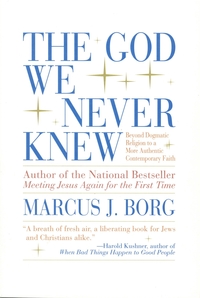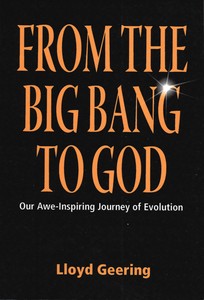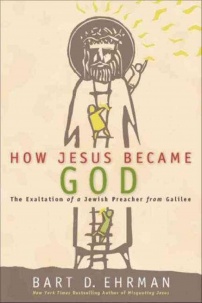
The God We Never Knew
In this book, Marcus Borg has done for God what he did for Jesus in a previous book, Meeting Jesus Again for the First Time. Examining God from an intellectual, theological and experiential standpoint, Borg gently dismantles images of God that, in the last 30 or 40 years, have ceased to be persuasive to many, and offers a new and compelling portrait of God that invites readers to reconsider their relationship with the sacred. Borg argues that older images of a monarchical God who is distant from us discourage intimacy with God. These models' images of domination and subjection, according to Borg, carry over into our relationship with nature, politics and one another. Borg's alternative image of God, ""the belonging model,"" portrays a compassionate God who is always with and amongst us, seeking relationship. Writing clearly, summarizing some of the best of contemporary theology in nontechnical language, Borg continues to speak to, and to challenge, the widest possible audience. This bookstudy will take place from January 5 to February 9, 2014.

From the Big Bang to God
According to Sir Lloyd, his latest book ‘From the Big Bang to God – our awe-inspiring journey of evolution’ (published in May 2013) was inspired by his participation at Science Express at Te Papa in October 2010, where he addressed the question: ‘What is the biological significance of religion?’
Central to the book are ideas derived from a series of notable thinkers including Ludwig Feuerbach (1804-1872), Pierre Teilhard de Chardin (1881-1955), and Karl Popper (1902-1994). Like them, Sir Lloyd describes the world as we know it in terms of 1) the physical world, 2) the mental world, and 3) the mental product world. Sir Lloyd explains that gods and God are constructs of the human mind, simply products of collective human thought. In a nutshell, we humans made God.
He explains so clearly the biological advantage that we humans have gained over all other biological entities on Earth: the evolution of language and hand in hand with it, our extraordinary mental capacity. Once you understand this, it becomes immediately apparent that any collective human constructs of the ‘human thought world’ are simply unexpected artefacts of evolutionary potential.
I urge you to grab a copy . Everyone should read this book. It is all about the machinations of the collective human mind and its most conspicuous products: culture, religion and science. It is a ‘new Great Story’, a modern explanation of everything. It is fluent, concise and very readable. You won’t be able to put it down.
Hamish Campbell
Senior scientist, GNS Science and geologist at Te Papa

How Jesus Became God
Rather than try to find an eloquent introduction to this book on the internet, I'll simply say that I think Bart Ehrman did an excellent job of describing the conditions and changes that took place in the first 300 to 400 years after Jesus that led people to the conclusion that Jesus is God. It is a well written and fascinating book for anyone interested in how the church came to believe what it says it does now. I hope these questions will facilitate our discussion.
